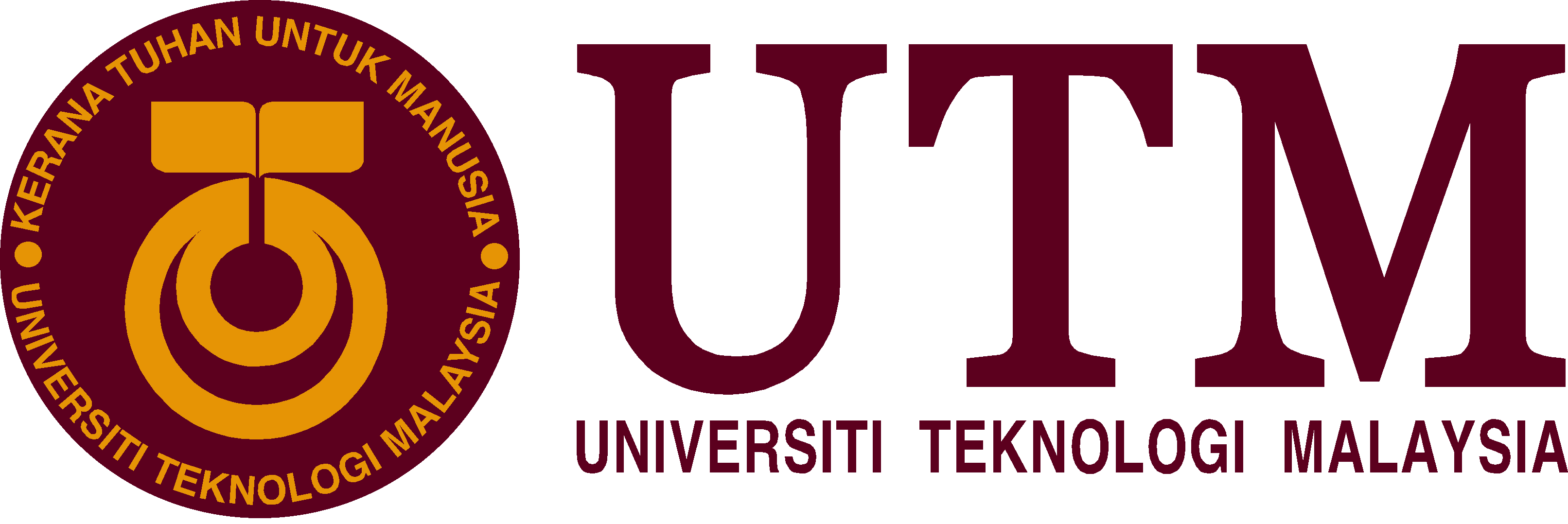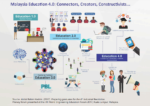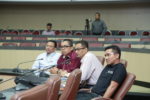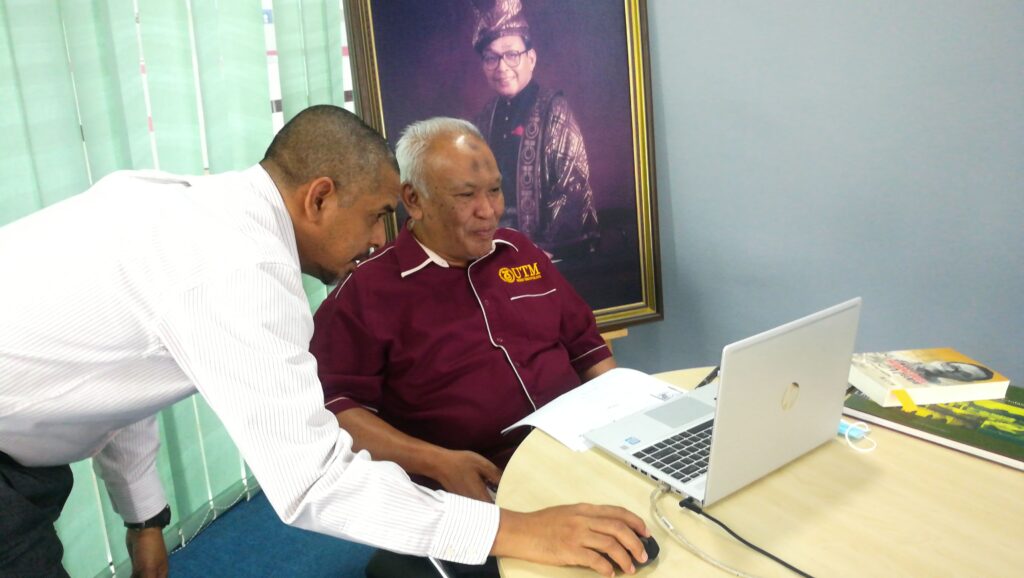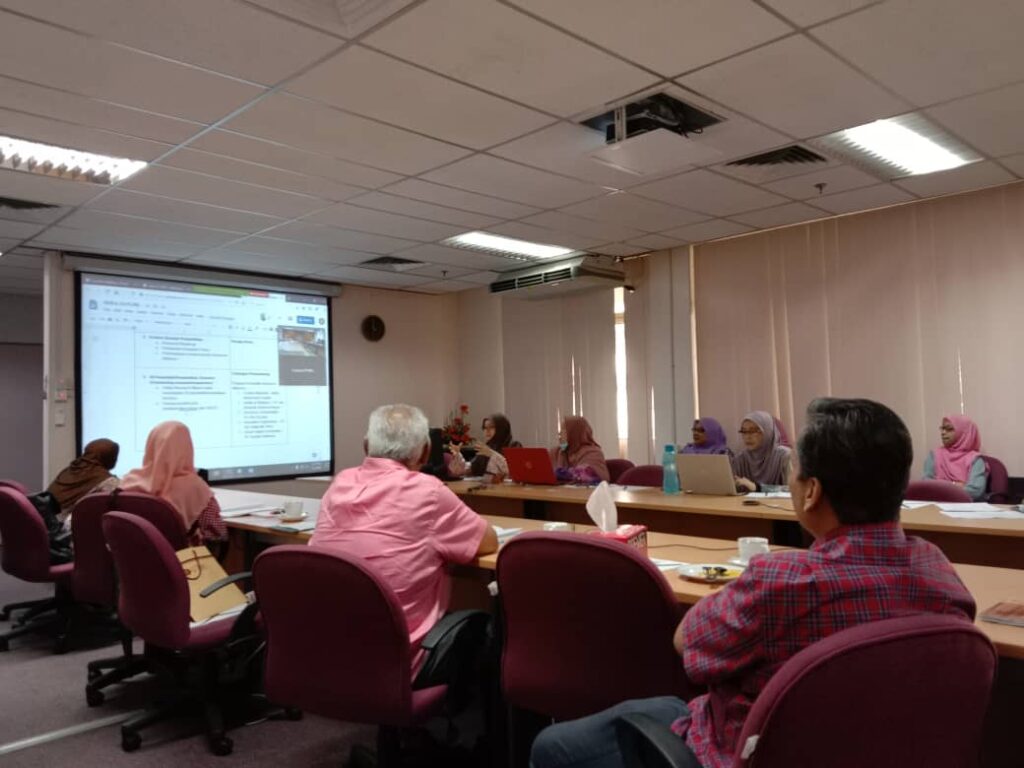Embedded librarianship in academic libraries is an emerging approach to research support, where librarians are integrated directly into academic departments to provide targeted services throughout the research lifecycle. In Malaysia, the adoption of embedded librarianship is becoming increasingly significant in response to the rising need for specialized research support services. At the core of this approach is the use of Knowledge Management (KM) frameworks, which provide the structure and resources necessary for librarians to actively engage in tasks such as data management, bibliometric analysis, and literature review assistance, all while maintaining a close relationship with the research community (Chen & Lin, 2018).
In the academic library context, KM frameworks facilitate the capture, organization, and dissemination of both explicit and tacit knowledge, creating an environment that supports innovation and research productivity. Explicit knowledge includes resources like databases, digital collections, and research publications, which are crucial assets within libraries. Meanwhile, tacit knowledge refers to the specialized expertise of library staff, who are well-positioned to guide researchers through the complexities of information management. KM frameworks enable these knowledge resources to be systematically organized, ensuring researchers have efficient access to essential information across disciplines, ultimately increasing the effectiveness of library services (Cox, Gadd, & Petersohn, 2019).
KM frameworks within embedded librarianship play a significant role by providing embedded librarians with the tools they need to support research more effectively. As these librarians work directly within research teams, the KM framework facilitates streamlined information flows, ensuring that the knowledge librarians provide is accessible and actionable for researchers. The framework enables librarians to organize resources systematically, which is essential in supporting interdisciplinary research commonly pursued at Malaysian universities. Through KM frameworks, embedded librarians have enhanced access to structured, relevant academic resources, allowing them to meet researchers’ specific needs more effectively (Chen & Lin, 2018).
Moreover, KM frameworks provide a consistent approach for librarians to handle research support activities, such as conducting bibliometric analysis, citation management, and offering literature review assistance. Malaysian researchers are increasingly data-driven, necessitating a well-organized approach to managing vast amounts of information, particularly as librarians become more integrated within research departments. Through KM frameworks, embedded librarians can adapt their work to meet research teams’ specific needs, offering insights into current trends, impact metrics, and effective strategies for research dissemination. This structured support is particularly valuable for academic institutions as they look to maximize the impact and reach of their research (Rasul & Singh, 2018).
Data management has become another crucial aspect of KM frameworks in embedded librarianship, particularly as research data has grown in volume and complexity. Leading Malaysian research institutions, such as Universiti Teknologi Malaysia, have adopted KM frameworks that focus on data management practices, helping embedded librarians to provide structured guidance on data storage, curation, and sharing. KM frameworks establish clear guidelines for data organization and compliance with institutional policies, ensuring that both librarians and researchers can navigate data management requirements smoothly (Amir et al., 2018). This structured support is especially useful in data-intensive fields, such as engineering and the sciences, where efficient data handling is critical to the research process.
KM frameworks in embedded librarianship also facilitate collaboration and knowledge sharing across academic departments and institutions. Malaysian academic libraries increasingly promote open-access repositories, which help disseminate local research outputs to the global academic community. KM frameworks encourage librarians to manage these repositories, making it easier for researchers to share their work openly, which ultimately fosters a collaborative environment conducive to interdisciplinary research. The knowledge-sharing focus of KM frameworks thus enhances the visibility of Malaysian research, broadening its accessibility and encouraging scholarly exchange both within and outside the institution (Chen & Lin, 2018).
However, implementing KM frameworks in Malaysian academic libraries is not without its challenges, including limited resources and the need for specialized training. Many libraries face budget constraints, making it difficult to deploy KM frameworks comprehensively. Embedding librarians within research teams and equipping them with the necessary KM tools often requires a significant financial commitment. Additionally, the rapid evolution of digital technology demands continuous training for librarians to keep pace with new KM tools and methodologies. These challenges underscore the need for ongoing investment in both technology and training to fully leverage KM frameworks within embedded librarianship (Cox et al., 2019).
Despite these challenges, the advantages of KM frameworks in embedded librarianship are considerable. Improved research productivity is a clear benefit, as KM frameworks simplify information retrieval and data management processes, allowing researchers to focus on analysis and discovery. Enhanced collaboration is another key advantage, with KM frameworks encouraging information sharing across departments and institutions, contributing to a more connected research environment. Embedded librarians, equipped with KM frameworks, provide researchers with expert guidance on navigating complex digital resources, which is becoming increasingly important across all research fields (Rasul & Singh, 2018).
Looking ahead, KM frameworks in Malaysian academic libraries are likely to evolve, incorporating advanced technologies like artificial intelligence (AI) to further streamline information retrieval and data analysis. AI-enhanced KM tools can allow librarians to focus on strategic support, such as research planning and collaboration facilitation. Additionally, as open-access policies gain traction, Malaysian libraries are expected to expand their KM frameworks to support open-access publishing, increasing the visibility of their research outputs. Digital literacy training will also continue to be a priority, as librarians support researchers in mastering digital tools essential for data-intensive research.
In conclusion, KM frameworks are critical in enhancing the role of embedded librarians within Malaysian academic libraries. By structuring knowledge management processes such as data curation, bibliometric analysis, and interdisciplinary collaboration, these frameworks enable librarians to provide targeted, high-value support to researchers. While resource and technological challenges remain, the advantages of KM frameworks are evident in fostering productivity, collaboration, and efficient knowledge sharing. As KM frameworks continue to advance, they will undoubtedly play an instrumental role in shaping the future of research support in academic libraries across Malaysia.
References
- Amir, R., et al. (2018). Library resources and services for research. Malaysian Journal of Library and Information Science. Retrieved from Malaysian Journal of Library and Information Science.
- Chen, J., & Lin, H. (2018). Embedded library research support service: A knowledge management service framework in academic libraries. IFLA WLIC 2018 – Transform Libraries, Transform Societies. Kuala Lumpur, Malaysia. https://doi.org/10.1177/0961000617728111
- Cox, A., Gadd, E., & Petersohn, S. (2019). Competencies for bibliometrics. Journal of Librarianship and Information Science, 51(3), 746-762.
- Rasul, A., & Singh, D. (2018). Academic librarians’ roles and competencies in research partnership. Malaysian Journal of Library and Information Science. Retrieved from Malaysian Journal of Library and Information Science.
